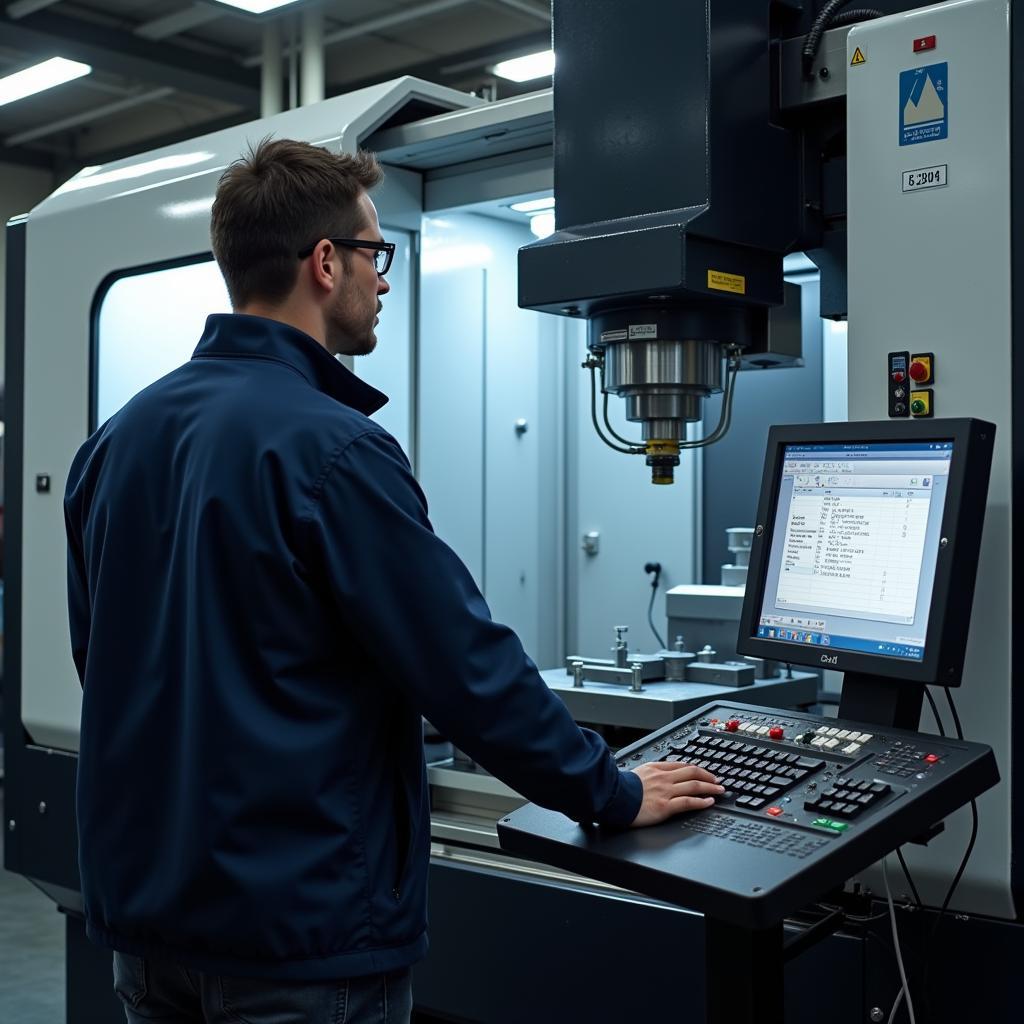Fabricator Machine: The Backbone of Modern Manufacturing
December 31, 2024Fabricator Machines are essential tools in modern manufacturing, transforming raw materials into finished products. They offer precision, efficiency, and versatility, making them indispensable across various industries, from automotive and aerospace to construction and consumer goods. Understanding their functionalities and applications is crucial for anyone involved in manufacturing or related fields.
Understanding the Fabricator Machine
Fabricator machines encompass a wide range of equipment designed for material fabrication. This includes cutting, shaping, bending, and assembling various materials like metal, plastic, and composites. These machines are often automated, offering high precision and repeatability, crucial for large-scale production.
Types of Fabricator Machines
Different types of fabricator machines cater to specific fabrication needs. Some common types include:
- CNC Machining Centers: These versatile machines use computer numerical control to automate cutting, milling, and drilling operations.
- Laser Cutting Machines: Employing high-powered lasers, these machines offer precise and clean cuts in various materials.
- Press Brakes: These machines bend sheet metal into desired shapes, essential for creating complex parts.
- Welding Machines: Used to join metal pieces together, these machines come in various types like MIG, TIG, and arc welding.
- Punch Presses: These machines punch holes or shapes into sheet metal using a die.
Advantages of Using Fabricator Machines
The use of fabricator machines offers several key advantages:
- Increased Efficiency: Automation significantly speeds up the fabrication process, reducing production time and costs.
- Improved Precision and Accuracy: Computer-controlled machines offer high precision, resulting in consistent and high-quality products.
- Enhanced Safety: Automated systems minimize human intervention in hazardous tasks, improving workplace safety.
- Greater Versatility: Fabricator machines can work with a wide range of materials and perform diverse operations.
- Reduced Material Waste: Precise cutting and shaping minimize material waste, leading to cost savings and environmental benefits.
How to Choose the Right Fabricator Machine
Choosing the right fabricator machine depends on several factors:
- Material Type: Different machines are suited for different materials like metal, plastic, or composites.
- Production Volume: The required production volume dictates the machine’s capacity and automation level.
- Complexity of Designs: Intricate designs may require specialized machines like CNC machining centers or laser cutters.
- Budget: Fabricator machines come in a wide price range, so it’s essential to consider your budget.
“Selecting the appropriate fabricator machine requires a careful assessment of your specific production needs and budget,” says John Miller, Senior Manufacturing Engineer at Advanced Fabrication Solutions. “Consider factors like material compatibility, required precision, and automation level to make an informed decision.”
 Technician Operating CNC Machining Center
Technician Operating CNC Machining Center
Fabricator Machine Maintenance
Regular maintenance is crucial for ensuring the longevity and optimal performance of fabricator machines. This includes:
- Regular cleaning and lubrication.
- Inspection of parts for wear and tear.
- Calibration and alignment checks.
- Timely replacement of worn-out components.
“Preventive maintenance is key to minimizing downtime and maximizing the lifespan of your fabricator machines,” adds Maria Sanchez, Head of Maintenance at Global Manufacturing Inc. “Regular inspections and timely repairs can prevent costly breakdowns and ensure consistent production.”
Conclusion
Fabricator machines are the cornerstone of modern manufacturing, enabling efficient and precise production across diverse industries. Choosing the right machine and implementing a robust maintenance plan are vital for achieving optimal performance and maximizing return on investment. Fabricator machines are a powerful tool for anyone involved in creating tangible products, from prototypes to mass-produced goods.
FAQ
- What are the different types of fabricator machines?
- How do I choose the right fabricator machine for my business?
- What are the benefits of using fabricator machines?
- How can I maintain my fabricator machine?
- What are the common problems with fabricator machines?
- Where can I buy fabricator machines?
- What is the future of fabricator machines?
Common Scenarios and Questions
- Scenario: A small business owner needs to choose between a laser cutter and a CNC machine for their prototyping needs.
- Question: What are the key differences between laser cutters and CNC machines, and which one is better suited for prototyping?
- Scenario: A manufacturing plant experiences frequent breakdowns with their fabricator machines.
- Question: What are the common causes of fabricator machine breakdowns, and how can they be prevented?
Further Exploration
- Explore more articles on our website about different types of fabricator machines.
- Read our guide on choosing the right fabricator machine for your business.
- Check out our blog post on fabricator machine maintenance tips.
For any assistance, contact us at Phone: 0915117113, Email: [email protected] or visit our address: To 3 Kp Binh An, Phu Thuong, Viet Nam, Binh Phuoc 830000, Viet Nam. We have a 24/7 customer support team.